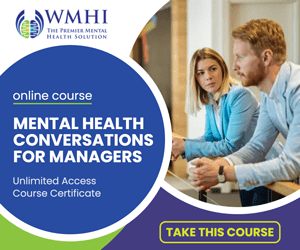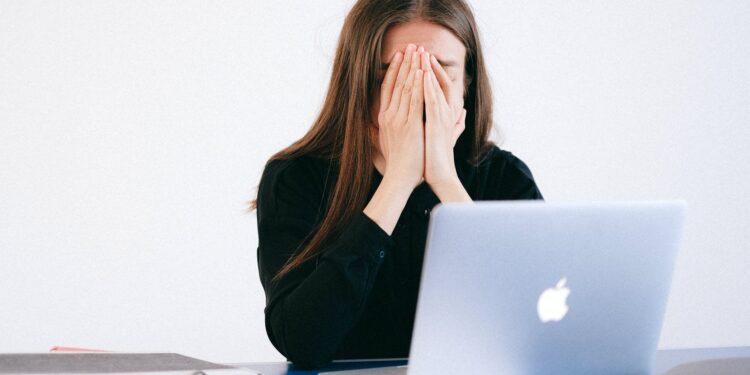Occasional anxiety is seen as a normal part of life, but you have a chronic anxiety disorder if you’re experiencing persistent, excessive, and intense fear or worry. There are numerous risks factors of anxiety, such as traumatic events, genetics, environmental factors, family history, substance use, and physical conditions, such as heart arrhythmias and thyroid problems. Based on science, anxiety interferes with your performance in your day-to-day activities.
What is Anxiety?
Anxiety is a mental disorder where your brain reacts to stress and alert you to potential dangers. A feeling of being anxious can occur from time to time. For instance, you’ll probably become anxious before taking a test or when making a crucial decision.
Types of Anxiety
- Panic disorder
Repeated and unexpected episodes of fear characterize the panic disorder. In addition, you’ll experience physical symptoms, such as dizziness, shortness of breath, chest pain, abdominal distress, and heart palpitations.
- Generalized Anxiety
This type of anxiety disorder is characterized by exaggerated tension and worry. In addition, general anxiety causes uncontrolled feelings without a definite or a single trigger.
- Social Phobia
Also termed as a social anxiety disorder. Social phobia can be characterized by excessive self-consciousness and overwhelming anxiety, especially in social situations.
- Obsessive-Compulsive Disorder
This type of anxiety disorder is characterized by unwanted, recurrent thoughts and repetitive behaviors. Most people suffering from obsessive-compulsive disorder perform repetitive behaviors like cleaning, counting, hand washing, and checking in order to prevent obsessive thoughts.
- Post-Traumatic Stress Disorder
This type of disorder occurs when you’re exposed to a traumatic or terrifying event, such as accidents and human-caused disasters.
Anxiety Triggers
- Negative Thinking
When you’re frustrated or upset, your mind can worsen anxiety based on your thinking. Having low self-esteem and talking negative words about yourself can cause anxiety. It’s important to consult a professional therapist if you’re unable to think positively.
- Conflict
Disagreements, relationship problems, and arguments can worsen or trigger anxiety. It’s, therefore, important to learn conflict resolution tactics and strategies in order to make sound decisions.
- Financial Concerns
Unexpected bills, debts, and the inability to save money triggers anxiety. In order to learn how to deal with this problem, consulting a professional financial advisor is essential.
- Caffeine
Most people rely on caffeinated beverages, not aware that they trigger anxiety. For instance, people with social anxiety and panic disorder are more sensitive to the effects of caffeine.
- Public Performances and Events
Performing in competition and public speaking can trigger or worsen anxiety. A therapist Will play a significant role in helping you cope with this situation.
Anxiety Symptoms
- Restlessness and Difficulties in Sleeping
Based on research, anxiety can keep you awake at night, particularly the night before the occurrence of a traumatic event which contributes to tension and fear. Insufficient sleep can contribute to other mental health problems, such as depression and stress. Inadequate sleep as a result of anxiety will make you toss and frequently turn in bed.
- Concentration Issues
Having concentration problems is a symptom of anxiety and a side effect of sleep problems and worry. Most people with concentration problems will procrastinate, either unknowingly or knowingly. Therefore, if you’re struggling to complete school assignments and work, anxiety is the culprit.
- Shaking and Trembling
Anxiety causes stress which causes your limbs to shake, especially your hands. This feeling is normal and temporary, but it can create more anxiety and fear.
- Palpitations and Increased Heart Rate
When a person is faced with a stressful situation, the heart rate increases and becomes irregular. Most people who face this situation are social anxiety disorder patients. In addition, palpitations and Increased heart rate occur during a panic attack.
- Tension and Irritability
Irritability and tension are common symptoms of anxiety. Anxiety makes a person easily lose patience. In addition, anxiety will make you feel on edge more often.
- Fatigue
Anxiety reduces the quality of your sleep, thus leading to fatigue throughout the day. Fatigue lowers your productivity, attention, and concentration in your field of specialization.
- Excessive Worrying
Excessive worrying is a symptom of anxiety. The anxious feeling can be caused by various factors, such as personal relationships, financial instability, school interactions, and health issues.
- Shortness of Breath and Chest Pains
Anxiety affects your breathing rate, thus causing changes in temperature. You’ll, therefore, struggle to get sufficient oxygen in your lungs, thus leading to shortness of breath. Sometimes, an anxiety disorder can cause chest pains and tightness sensation. According to research, this situation can be termed dyspnea.
- Feeling of Terror
Impending doom and feeling of terror are common symptoms of anxiety disorder. Based on science, these symptoms are paralyzing and severe. Sometimes you’ll feel like something bad is about to happen. In addition, these symptoms are scary, but they’re temporary.
How to Deal with Anxiety
-
- Sufficient Sleep – If you’re suffering from anxiety or stress, adequate sleep and rest can help you cope with the difficult situation.
- Exercise Daily – Regular exercise improves both your physical and mental health. Therefore, if you have an anxiety disorder, exercises will make you feel good and have peace of mind.
- Limit Caffeine – Limiting your caffeine intake will help you lower anxiety. In addition, you should avoid excessive drinking of alcohol and substance use.
- Breath in and out – Deep breathing is a significant strategy that’ll help you calm down. You should focus on evenly exhaling and inhaling.
- Eat a Balanced Diet – Skipping meals can trigger or worsen anxiety. Therefore, you should consume healthy and energy-boosting foods.
- Visit a Therapist – Sometimes it’s important to seek help from a professional therapist with more years of experience in this industry. A therapist will analyze and evaluate your situation to identify the root cause of the problem. You’ll, therefore, attain tips on how to cope with ups and downs. Some factors you should consider when selecting the best therapist include reputation, transparency, availability, and professionalism.
Conclusion
Anxiety disorders lower your efficiency and performance at the workplace or in day-to-day activities. Therefore, it’s important to consider the above-listed tips on how to deal with anxiety.
# Photo by Anna Shvets from Pexels









